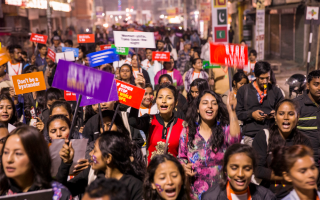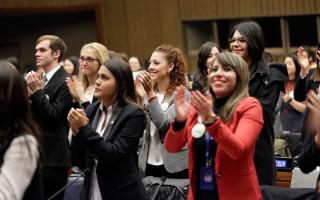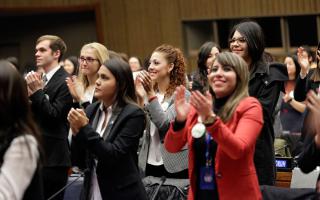Self-Paced Online Course on Freedom of Expression, Access to Information, and the Safety of Journalists
This self-paced online course is designed to enhance the capacity of the United Nations(UN) system, particularly at the country level, to promote freedom of expression, access to information, and the safety of journalists. Aligned with the UN Plan of Action on the Safety of Journalists, the course aims to encourage collaboration among various agencies on these important issues.
Many journalists continue to face challenges when it comes to freedom of expression, access to information, and safety. UNESCO reports that on average, every five days a journalist is killed for bringing information to the public. These attacks include murder, abductions, harassment, intimidation, illegal arrest, and arbitrary detention. Journalists are censored, intimidated, attacked and often have to grapple with defamatory laws in the contexts in which they work.
Silencing journalists is a threat to all human rights. A key purpose of the UN is to promote and protect human rights as a key principle. A joint UN effort is needed to address the challenges and threats facing journalists and media workers. Protecting journalists means protecting freedom of expression and enabling access to information for all.
This new self-paced online course serves as a resource for different UN stakeholders, particularly resident coordinator offices and UN country teams.
The self-paced course aims to up scale the UN system's understanding of the rights to freedom of expression, access to information and safety of journalists by leveraging international human rights standards on these priorities.
The course is hosted on UNSSC's Blue Line learning hub and consists of four lessons. The course is entirely self-paced and participants may complete the course at their own pace. To support the learning objectives, the course includes case-studies, knowledge-checks and reflective exercises
The course covers the following lessons as well as relevant subtopics such as hate speech, disinformation, the role of media during elections, and UN human rights monitoring mechanisms:
- Introduction to Freedom of Expression
- Safety of Journalists and the UN Plan of Action
- Access to Information, Disinformation, and Hate Speech
- UN Monitoring Mechanisms and Inter-Agency Collaboration
The course is designed for UN personnel working in programmatic areas related to freedom of expression, access to information, and the safety of journalists. UN personnel engaged with the resident coordinator offices (RCOs) and UN country teams (UNCTs) will especially benefit from the course
The development of this course is funded by UNESCO's Multi-donor Programme for Freedom of Expression and Safety of Journalists (MDP). There is no cost of participation for this course.


